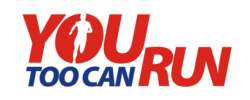Sweat Rate Study
Abstract
Purpose Although fluid loss and dehydration is a major factor affecting performance in marathon runners, sweat rate data are lacking for non-elite, recreational runners. Hence the purpose of our study was to determine sweat rates among non-elite, recreational runners under hot and humid environmental conditions and to determine the factors affecting those rates.
Methods One hundred and forty-six non-elite marathon runners were recruited as volunteers from 3 Indian cities. Demographic details and running history was collected from each participant before the run. The sweat rate (in litres) was calculated as the difference between the body weight at the beginning and the end of the one-hour run in each participant.
ResultsThe mean sweat rate among the runners was 1.4±0.4 l per hour. The mean distance run was 9.3±3 km at a mean on-field temperature and humidity of 27.2° C (range, 25°-29.2° C ) and 70% (range, 48%-81%) respectively during the run. Multivariate analysis showed that temperature, BMI and male gender were factors which were significantly associated with the mean sweat rate.
Conclusions Sweat rate is low in non-elite marathon runners under hot and humid weather conditions and was well within the recommended 2% body mass loss in one hour. Using this background of baseline sweat rate data further studies on electrolyte imbalance and fluid replacement strategy for such non-elite runners need to be performed.
Keywords sweat rate; weight loss; marathon running; hydration.

Leave a Reply